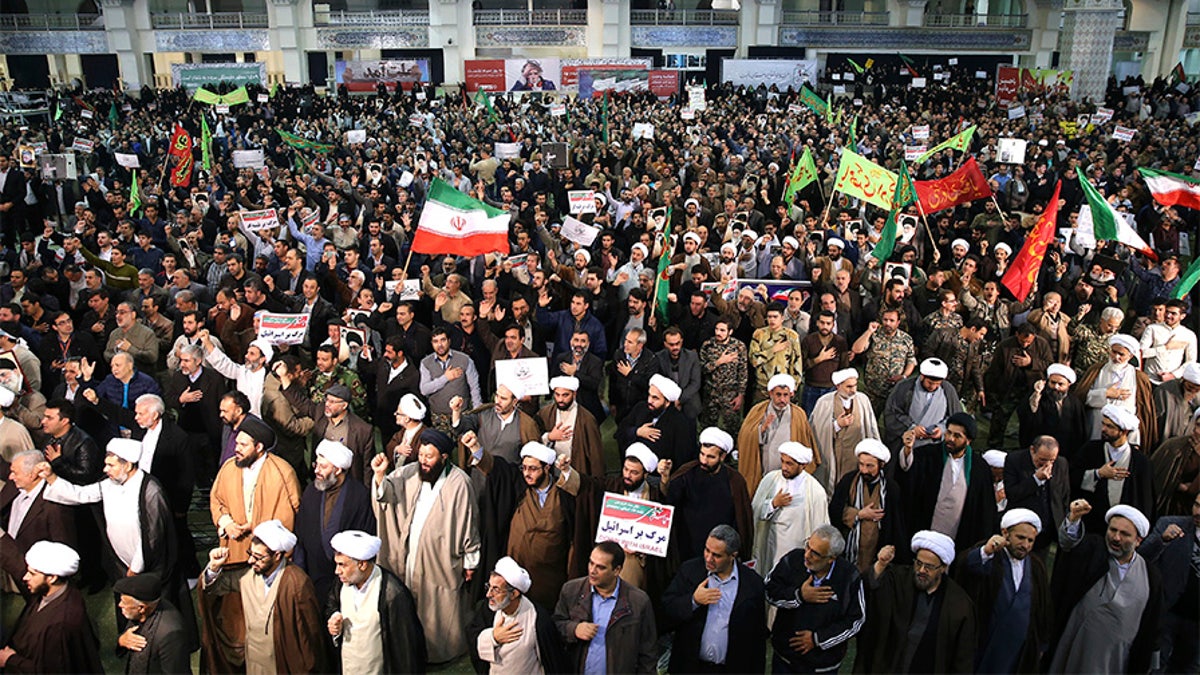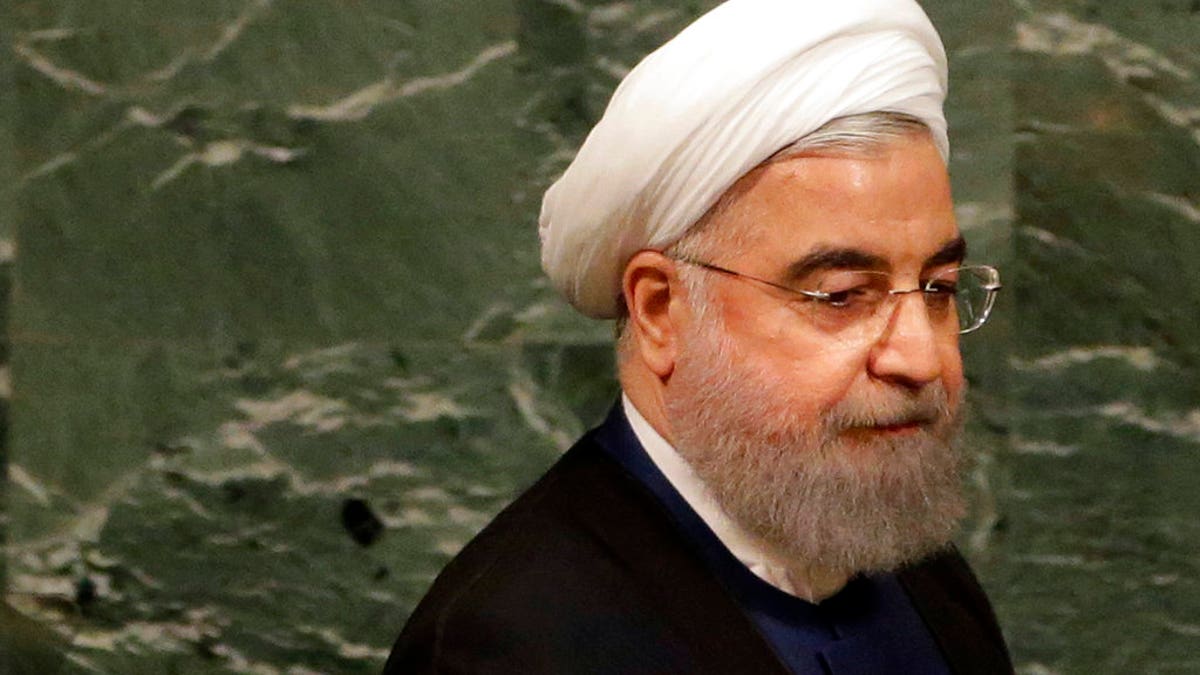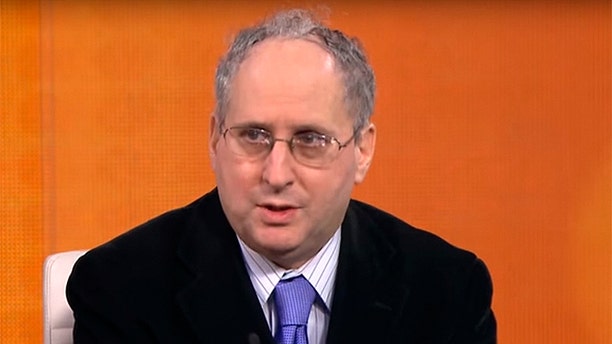Keane: Iran protests cut across political fabric of regime
Anti-government demonstrations enter 8th day in Iran.
The deadly protests gripping Iran may not be the final battle between the Islamic republic's hard-line government and its fed-up populace, but it shows the mullahs are running out of time, according to an expert who helps advise Congress.
Tehran has moved swiftly to quell the most serious protests since 2009's "Green Movement," cutting off social media and mobilizing police and military forces to deal with spreading demonstrations. But the demographics of the protests and the heavy-handed approach to them bode poorly for the brutal regime, according to Kenneth Katzman, a senior analyst of Iran, Iraq, Afghanistan, and Persian Gulf Affairs at the Congressional Research Service.
"[The demostrations have] morphed into basically a youth protest against the system writ large, and it all goes back to the clerics' monopoly on power," said Katzman, whose group provides research and analysis to Congress.
So far, at least 21 people have been killed and more than 450 arrested in widespread demonstrations.
" ... at some point the Islamic Republic's luck presumably runs out."
Katzman, who recently published a study of the impact of sanctions relief on Iran's economy, acknowledged he was caught off-guard by the protests, which came at a time when the country's economy was improving in variety of ways.
The movement began over financial concerns among "the working poor," a group of people who were actually doing better economically than in recent years. Once the protests started gaining traction, a younger generation joined in and fueled what has become a referendum on everything from the way the government spends its money to the fact that women can still face punishments for not properly covering their faces.

Protests have spread throughout the country, with at least 21 people killed and more than 450 arrested (Associated Press)
Human Rights Watch, which documents human rights abuses around the world, noted in its most recent report that executions abound in Iran, often for drug-related offenses, and that "hard-line factions that dominate the security apparatus and judiciary... crack down on citizens for the legitimate exercise of their rights, in blatant disregard of international and domestic legal standards."
These abuses persist despite the self-styled "reform" administration of President Hassan Rouhani, who has found himself targeted by many protesters in the same way as the even more controversial "hard-line" clerics.

Rouhani ran as a reformer, but has left many disappointed (Associated Press)
"These are simmering disputes," said Katzman, who believes that outbursts of protests like the one we're seeing are "going to keep happening periodically, but at some point the Islamic Republic's luck presumably runs out."
Katzman isn't alone in believing that the days could be numbered for the Iranian ruling class. The protests now underway "represent the most serious challenge to the theocracy that has ruled [Iran] since seizing power in the 1979 revolution," Alireza Jafarzadeh wrote in an op-ed piece for FoxNews.com.
Jafarzadeh, the deputy director of the Washington office of the National Council of Resistance of Iran, believes U.S. support could prove decisive in this fight.
Unlike the Obama administration during the 2009 uprising, the Trump administration has given full-throated backing to the demonstrations.
"The presidential and vice presidential tweets, and the action by [U.S. Ambassador to the United Nations Nikki] Haley, are just the first steps America’s leaders need to take to help free Iranians from the tyrannical Islamist government that has deprived them of so many freedoms," Jafarzadeh wrote. "The U.S. government needs to support the protests with actions to put pressure on the repressive forces of the Iranian government."
On Wednesday, President Trump issued yet another tweet in support of the Iranian protesters, writing that demonstrators "will see great support from the United States at the appropriate time!"
A day before, the president was setting his sights on the controversial nuclear deal secured by the Obama administration, suggesting in another tweet that "All of the money that President Obama so foolishly gave [Iran] went into terrorism and into their 'pockets.'"
Trump was referring to the fact that Iran now has access to billions of dollars in assets that had previously been frozen under the now-lifted sanctions, as well as a $1.7 billion payment from the U.S. that coincided with Iran's decision to release imprisoned Americans.
Katzman notes that there is little evidence any of that money was injected back into the Iranian economy to help its people. At the time, then-Secretary of State John Kerry even conceded that some of the money could "end up in the hands of the IRGC (Islamic Revolutionary Guards Corps) or of other entities, some of which are labeled terrorists."
Earlier this week, White House Press Secretary Sarah Sanders was asked if President Trump might consider re-imposing the sanctions on Iran that were lifted as part of the nuclear deal.
"The president hasn't made a final decision on that," she said, adding that "he's going to keep all of his options on the table in that regard."
According to Katzman, it is the Iranian leadership who have truly emerged as the losers in this deal because the people of Iran seen to know that they did not benefit from it. Katzman warns that re-imposing sanctions could backfire and help the regime make the case that external influences are out to get Iran.
"Critics of the deal said that it would give the regime all this money, that they’d be able to buy off their opposition... that they would consolidate power, and it’s been actually the opposite," Katzman argues. "They've given up much of their nuclear program and haven't gotten any of the stability."
Bloomberg columnist Eli Lake told "Fox & Friends" on Wednesday that he believes there could still be time for actual reform in Iran, despite the failures of the past.
"There was an opportunity to try to use the diplomatic process in the Obama years to get the Iranians to treat their populations better and to respect human rights, but he ended up going for a narrow nuclear agreement that didn’t address any of those things," Lake said.
"Now there’s an opportunity for those of us in the west to say, ‘Iran, if you want to be treated like a normal nation, if you want people to invest in your country then you need to free your jails of the lawyers, and the activists, and students you’ve been arresting for decades now.”






